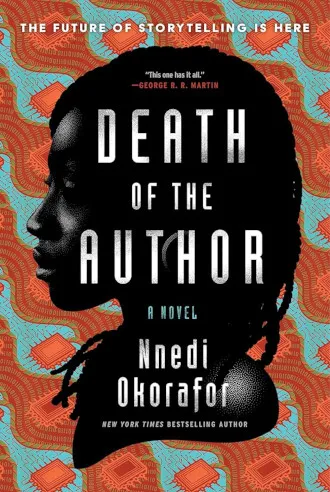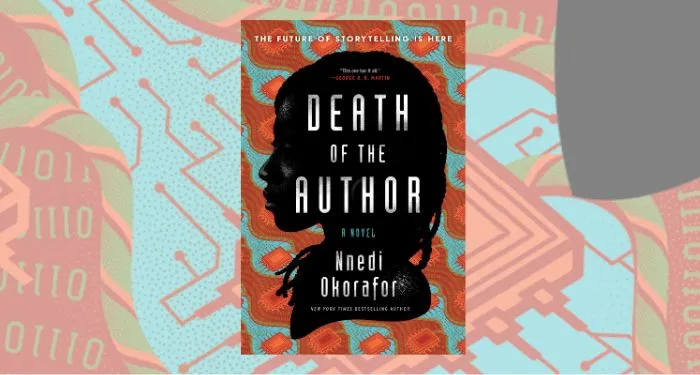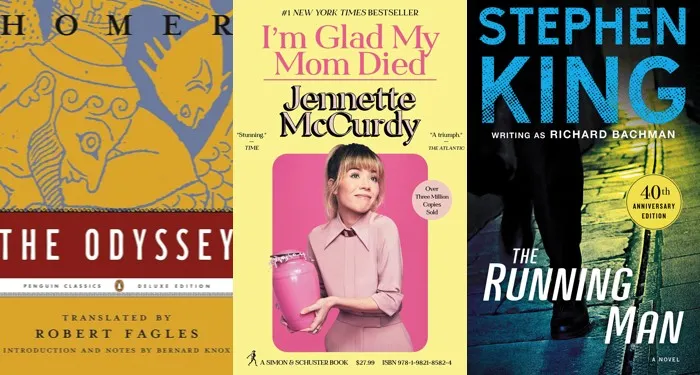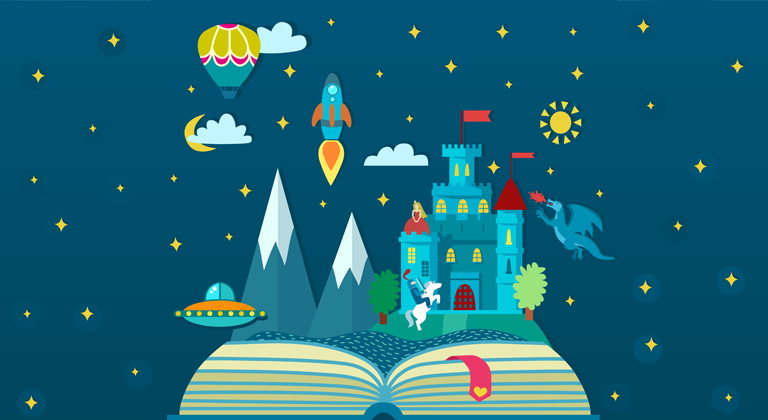Megan Mabee has been filling notebooks with her story ideas and favorite book quotes since she first began reading. She enjoys board gaming, rewatching Miyazaki movies, and building Legos with her preschooler. Megan holds a Master of Library and Information Studies degree from UNC Greensboro and a Public Librarian Certification. Megan has worked in a college bookstore and high school library, and she now loves talking books in the public library where she works and as a Bibliologist at TBR: Tailored Book Recommendations.
I’ve been a fan of robots since The Iron Giant came out in 1999, or sometime adjacent, whenever my family bought the movie on VHS. The idea of robots with souls moves me in unexpected ways. I think there’s a beautiful oxymoron to it, like seeing wildflowers peaking through pavement—signs of the mysteries of life tucked inside a machine of all places.
When I started reading Death of the Author by Nnedi Okorafor, I felt myself tumble further down the rabbit hole of robot content. I love how Okorafor intertwines a robot narrative with poignant Nigerian American family dynamics, the unlikely fame of a struggling writer, and commentary on disability, race, art, and so many other emotional themes. It reminded me of Gabrielle Zevin’s and Emily St. John Mandel’s styles, and I couldn’t put the book down.

Death of the Author by Nnedi Okorafor
The story introduces us to Zelu, a disabled Nigerian-American author. In the midst of celebrating her sister’s wedding, Zelu learns that her latest manuscript has been rejected and that she’s been fired from her adjunct professor job.
Read This Book
One book recommendation to help you cut through the noise
Zelu takes those lemons and makes lemonade. While still at the hotel for the wedding, she begins writing a book about robots, AI, and the fall of humanity that will change her life forever. Okorafor draws us into Zelu’s rise to fame as her book becomes a worldwide phenomenon. As the years pass, we watch Zelu navigate her new stardom, as well as the ripple effects it has on her family and romantic relationships.
Something unique about Death of the Author is that Okorafor includes excerpts from Zelu’s novel. The story often switches between Zelu’s perspective as the author, and Ankara, a human-shaped, story-telling “Hume” robot in Zelu’s book Rusted Robots. This book within a book offers a haunting and atmospheric post-apocalyptic setting on a ruined Earth overrun with robots. I found it fascinating to live inside a robot’s head, and I gained a surprising empathy for AI through the character of Ijele. Okorafor gives us much to think about regarding robots and AI and how their impact can evolve in awe-inspiring and devastating ways.
While Zelu’s chapters initially read as more literary fiction than sci-fi, compared to the sci-fi-heavy Ankara chapters, Okorafor also digs into technology in interesting ways that infuse sci-fi elements in Zelu’s story as well. With time, from Zelu’s perspective, technology evolves to include advancements that allow Zelu to test run. I don’t want to give too much away and risk revealing any spoilers. Suffice it to say, these technologies incite poignant dialogue on disability, social status, privilege, autonomy, identity, and more. Okorafor explores these topics in nuanced and thoughtful ways.
While the robots and technology themes hooked me, Okorafor’s character development and relationship dynamics made me fall in love with Death of the Author. Zelu is one of six Nigerian American siblings, with four sisters and one brother. Zelu’s close-knit, heartfelt, yet sometimes fraught relationships with her siblings and parents are well done. Her complex and endearing relationship with Msizi also drew me right in. I like how Zelu stayed true to herself in her relationships as well. Chapters with interviews about Zelu from those close to her intersperse the narrative and add incredible depth to Zelu’s character.
Nnedi Okorafor’s Death of the Author will stay with me long after reading. For as Okorafor writes, “Stories contain our existence; they are like gods. And the fact that we create them from living, experiencing, listening, thinking, feeling, giving–they remind me of what’s great about being alive.”



















 English (US) ·
English (US) ·